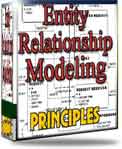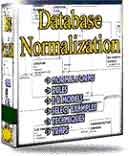 |
||
|
|
Software tools | Programming tips | Database fundamentals Using a ref cursor in Oracle PL/SQLUsing a ref cursor is an easy way to give access to the content of a database table from eiter PL/SQL or Java, or most other programming languages, for that matter.The following example shows how you can define a
global ref cursour in your Package Specification, and how it is
transformed to a local cursor for any given function in the Package
Body:
--
*********************************************************************** TYPE csGetResultSet is REF CURSOR; --
*********************************************************************** function
sfGetAccountInterval CREATE OR
REPLACE package body GetRefCursors is --
*********************************************************************** function
sfGetAccountInterval open csGetAccounts for SELECT
accounts.account_no,accounts.name return csGetAccounts; end sfGetAccountInterval; end
GetRefCursors; The global cursour csGetResultSet has to be specified in the Package Specification, but is redirected to the local cursor csGetAccounts so it can be returned to the calling module from within that function. This can be used as a template to build a framework for handling all SELECT access to your tables through such a mechanism. This way you will deliver a generic and consistent interface for all applications and/or modules that need to access data within your different tables. Not to mention: The DBA can easily tune the various SELECT statements without even touching the application(s), no matter how many different modules that are accessing a given table. Time saved, and secure, identical and (hopefully) error-free code is delivered to anyone from just one place. If you need to learn how you can use a ref cursor in Oracle using Java, read here: Oracle ref cursor in Java Other important resources on this site: Oracle DBA |
Exclusive interviews with:
Free eBookSubscribe to my newsletter and get my ebook on Entity Relationship Modeling Principles as a free gift: What visitors say...
"I just stumbled accross your site looking for some normalization theory and I have to say it is fantastic.
Read more
Testimonials
I have been in the database field for 10+ years and I have never before come across such a useful site. Thank you for taking the time to put this site together." Mike, USA |
|
Theory & Practice
DB Normalization Analysis Phase Database Keys DB Glossary Appl.Architecture Oracle DBA MySQL DBA SQL Server DBA Install Oracle Install SQL Server Proj.Management Oracle Constraint Programming Tips Database Normalization eBook: |
||
|
Copyright © www.databasedesign-resource.com /
All rights reserved. All information contained on this website is for informational purposes only. Disclaimer: www.databasedesign-resource.com does not warrant any company, product, service or any content contained herein. Return to top
The name Oracle is a trademark of Oracle Corporation. |
||